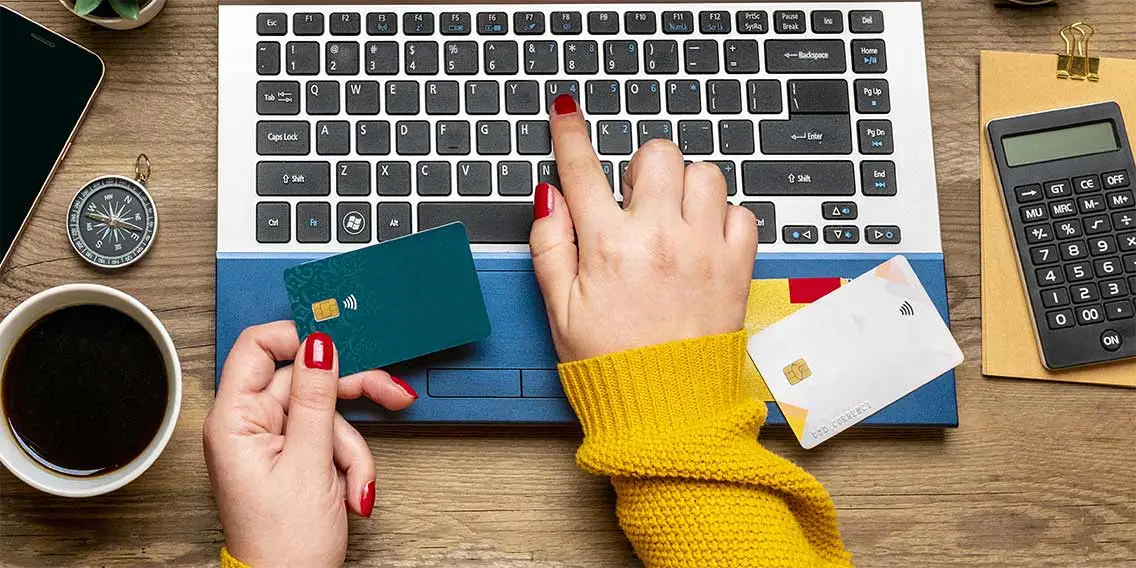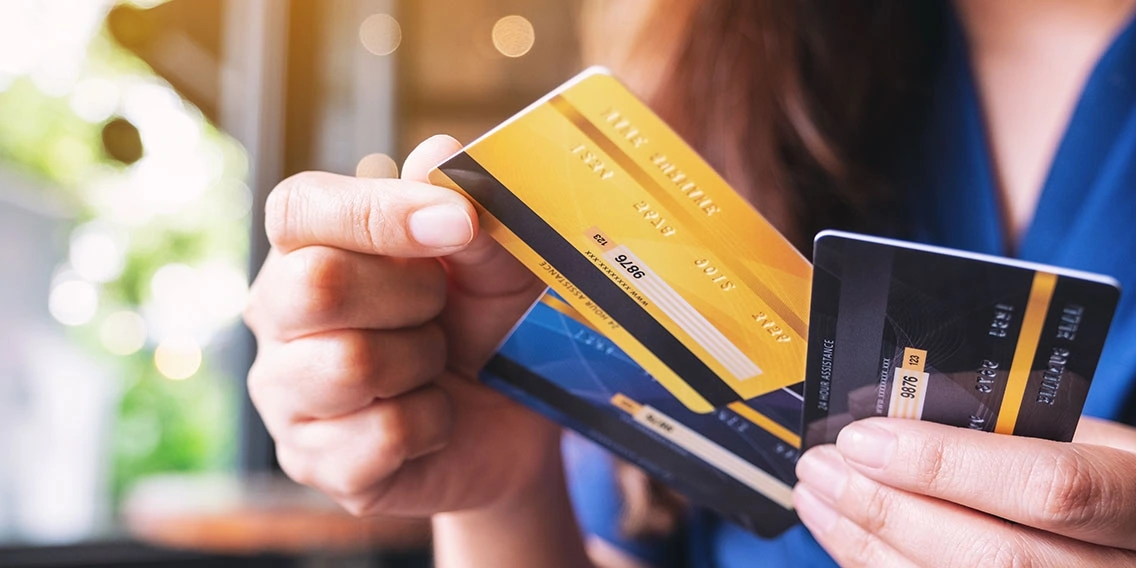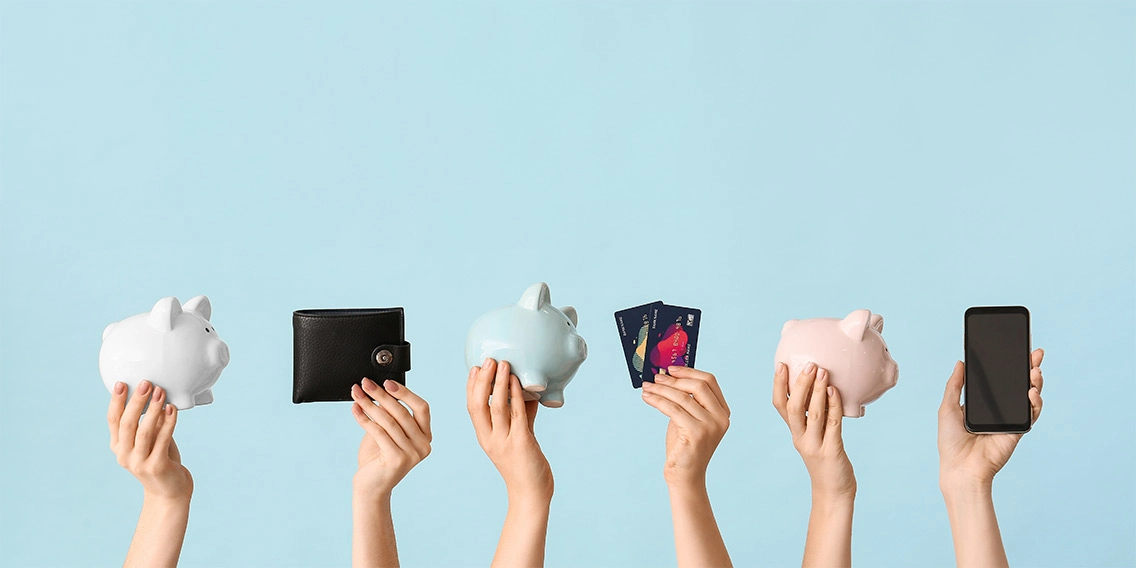CREDIT CARDS
9 Tips for Credit Card First Timers
EXPECTED READ TIME: 6 MINUTES
So, you did your research, completed an application, and qualified for your first credit card. Now, you're holding a shiny rectangle embossed with your name and you're ready to put the power of plastic to work for you.
Before you set out on a spending spree at your favorite store or online retailer, here are nine common-sense tips to put you on a path to credit card credibility.
1. Establish a Spending Limit
Your credit card comes with a preset spending limit known as your "available balance," but that doesn't mean you should plan to reach it. In fact, you should stay far away from it.
Try to limit your credit utilization to 30% percent or less of your card's available balance. So, for instance, if you have a $1,000 limit on your credit card, you should strive to keep your balance below $300 at any time.
Some purchases are best made with a credit card for security and reward points/airlines miles, so if you do make a single purchase close to the limit for this reason, pay it off as soon as it clears.
2. Charge Only What You Can Afford
Never charge something if you don't have the money in your checking or savings account to comfortably cover it. That's the easiest — and arguably best — rule of thumb for using your credit card and staying out of unmanageable debt.
Why not just use your debit card then? Using your credit card responsibly allows you to establish or strengthen your credit rating, take advantage of rewards and other special offers, and protect yourself and your purchases from fraud and other issues.
Using your credit card irresponsibly can damage your credit score. This, in turn, can make it harder to secure a loan in the future for larger purchases like a car or home. Remember this: credit is about the long game.
3. Pay Your Bill on Time
Aside from spending within your means, paying your bill on time every month is your most important credit card responsibility. Failing to do so can negatively affect your credit score and result in late fees being added to your account.
Ideally, you should pay your balance in full each month. If you don't pay off your credit card charges each month, you'll have to pay interest on the balance. Left unchecked, interest charges can quickly grow and compound debt.
If you can't pay the whole balance, pay as much as you can — provided it's at least the minimum amount due — before the due date.
4. Scrutinize Your Statement
In a perfect world, you'd keep every credit card receipt and compare each one with the charges printed on your monthly credit card statement. Unfortunately, most credit card users focus solely on the bill total rather than the sum of its parts.
Regardless of where you fall on the spectrum of statement reconciliation, you should get in the habit of carefully reviewing your monthly credit card bill. Verify all transactions and ensure you were charged the right amount for each one. If you spot unauthorized purchases or discrepancies with the charges, contact your credit card company immediately.
5. Keep Your Card Active
Contrary to what you might think, always maintaining a $0 balance on your credit card won't improve your credit worthiness. In fact, letting a credit card become inactive could negatively impact your credit rating.
It's essential to use your credit card — and, more importantly, manage the debt effectively — to prove to lenders and credit card issuers that you're a good steward of credit. If nothing else, make small purchases on your credit card every few months (and pay them off in a timely manner) to keep the account active and prevent the issuer from closing it on you.
6. Avoid Cash Advances
Even though your credit card looks and feels like a debit card, resist the temptation to treat it like one by taking a cash advance from your account. The convenience simply isn't worth the price.
When you withdraw cash on your credit card, you'll have to repay the money you borrow as well as:
- A cash advance fee, whether it's a flat rate or a percentage (typically 3% to 5%) of the amount withdrawn
- An ATM fee, which can range from $2 to $5
- Higher interest rates than normal credit card transactions
Plus, there's often no grace period with cash advances, so interest on the money you borrow begins to accrue immediately.
7. Monitor Your Credit Report
Checking your credit report periodically is a good idea, regardless of your financial situation. It makes even more sense once you start using a credit card regularly.
Your credit report provides a breakdown of your current and past debts, including a payment history for your credit card and other accounts. Monitoring your report can help you:
- Detect inaccurate or incomplete information
- Dispute and correct errors
- Identify identity theft and credit card fraud
- Understand your current credit position
You're entitled to a free credit report every year, so be sure to request yours and confirm all of your information is correct.
8. Go Mobile
One of the best ways to stay on top of your credit card activity is to set up an online account or download the card's mobile app. Better yet, do both.
Going mobile allows you to access your account whenever and wherever you want to view your balance, check your available credit, and ensure your payments post. Managing your credit card account in real time also helps you spot errors sooner than waiting on your monthly bill to arrive in the mail. It can even help you catch suspicious or fraudulent activity right away.
9. Automate Your Payments
Given the importance of paying your monthly credit card bill on time, go ahead and set up autopayments for your account. It's one of the simplest ways to avoid late fees and protect your credit score.
Depending on the card issuer and the terms of your contract, these fees can sometimes approach $40 per month.
To set up autopay, sign into your online credit card account and authorize the credit card company to debit your payment from your bank account on a set date each month. You can choose to pay the minimum, the full balance, or a fixed amount.
Keep in mind that, even with autopay, you should continue to review your monthly statements and monitor your account regularly rather than "setting it and forgetting it."
Bottom Line
In many ways, getting and using your first credit card is a rite of passage. It's also a huge responsibility.
Carrying large balances from month to month, being late with or missing payments, and constantly applying for new cards can wreak havoc on your credit.
On the other hand, if you use your credit card wisely, spend sensibly, and pay your bill on time every time, you'll reap rewards (sometimes in the literal sense) for months and years to come.
Explore Credit Card Options and Strategies Through PenFed
Discover the diverse offering of products, services, and support available to our members.




